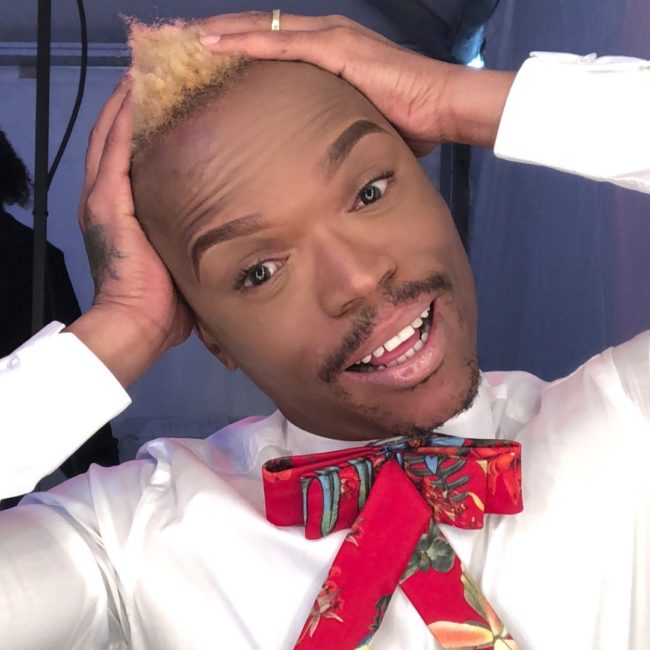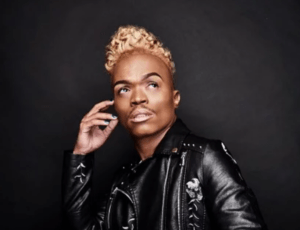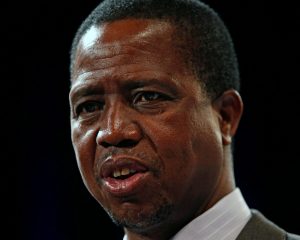Is Zambia ready for a gay pride march?
Colin Stewart is a 45-year journalism veteran living in Southern…
Behind Zambian politicians’ loud public denunciations of homosexuality, the country is showing signs of tolerance of LGBT people. Some say it’s even ready for a gay pride march.

The intensity of Zambian homophobia might suggest that the nation could not endure a demonstration of LGBT pride, but some activists think it’s time to shake the country out of its anti-gay status quo.
The question was even touched upon in the Lusaka Times, a prominent newspaper in the Zambian capital, in an article about homosexuality in Zambia and Malawi.
The article was based on a report by the South Africa-based Institute of Race Relations, “LGBTQ Rights in Sub-Saharan Africa” (PDF) by IRR researcher Gerbrandt van Heerden.
Van Heerden interviewed a Zambian gay-rights activist who said that “the capital city of Lusaka is a ‘diverse, cosmopolitan environment’ in which the idea of gay people is ‘nothing new’. Many people in Lusaka are, in other words, not concerned about whether their neighbours or colleagues might be gay or lesbian.”
“The newer generation is more vocal and more willing to participate in events such as an annual Gay Pride March,” Van Heerden reported.
But “Zambian youths remain highly divided when it comes to this issue. Some are highly accepting of the LGBTQ community while others scoff at the idea of allowing more rights for this group.”
The Lusaka Times article also quoted from the IRR report:
“The entertainment industry in Lusaka is a safe haven for LGBTQ people. Many LGBTQ people work within the wedding, fashion and performance arts (singers and dancers) sectors and attitudes within the entertainment industry are more favourable towards those with different sexual orientation and gender identities.

South African personality and one of Africa’s most high-profile gay celebrities, Somizi Mhlongo, was invited by PR Girl Media to be an official guest at the Lusaka July 2019 polo and fashion event, which confirms Jason’s sentiments about a more open-minded entertainment industry. However, the Zambian government reportedly stepped in to ban Mhlongo from attending the event. In a briefing at the New Government Complex in Lusaka, the Minister of National Guidance and Religious Affairs, Godfridah Sumaili, as well as a representative from the National Arts Council and two founders of PR Girl Media, addressed the controversy.
Minister Sumaili said that performance artists had a strong influence in society and had the power to alter public perceptions. She went on to say that ‘the government does not condone a situation where event managers are inviting people with questionable character that might undermine the morals of the land’.
Chishimba Nyambe from PR Girl Media adopted a more conciliatory tone and stated that although she personally admired and supported Mhlongo, Zambia was not, unfortunately ready for him yet.
On that note, I asked Jason to elaborate on the government’s position on the LGBTQ community. Zambia’s current president, Edgar Lungu, has said that he will not agree to equal rights for gay people – even at the cost of international aid. I asked Jason if the sentiment held by the president reflected the views of everyone in government or whether some public officials were actively fighting for decriminalising homosexuality.

According to Jason, the government – as in so many other African countries – uses the LGBTQ issue as a way of deflecting attention from more pressing problems that result from governance failure. They do this sort of scapegoating with reasonable success. However, Jason has noticed that Zambian society has in recent years become more aware of the government’s deflection tactics. So, when public officials once again highlight the so-called ‘LGBTQ problem’ ordinary Zambians will likely respond: ‘Okay, but what about corruption, poor service delivery and sky-high taxes?’.
Jason also pointed out that LGBTQ activists and civil organisations had been successful in lobbying for gay and transgender rights by focusing on HIV and AIDS. An official government document outlining responses to HIV and AIDS in the country includes the necessity to focus on gay and transgender people. According to the government document, no one in Zambia should be left behind when it comes to fighting HIV and AIDS, including those from the LGBTQ community. The fact that LGBTI people are mentioned a lot in the public health sector can be seen as evidence of LGBTQ civil society organisations’ most successful approaches in lobbying for greater acceptance and inclusion. Intersex people are also being focused on more by the health sector, and the tone on transgender people in the sector has softened.
Zambian LGBTQ organisations have also been successful in creating spaces where people can talk more openly about issues concerning the community. This is so much the case that visibility of LGBTQ people has increased in smaller towns outside Lusaka. Jason refers to himself as part of the ‘old guard’ that paved the way for younger LGBTQ people to be more prominent in pushing for equality. The newer generation is more vocal and more willing to participate in events such as an annual Gay Pride March.
Jason took time to elaborate on some of the bigger obstacles facing gay- and human rights groups in the country. One, he says, is that objective conversations around sexual issues, never mind LGBTQ issues, are not usually widely or openly held. This is because in many sections of Zambian society, the Bible is held as the supreme law. Because religion is so intertwined with politics, matters about sexuality and sex in general are neglected. In order for attitudes to shift in Zambia, there should be a greater focus on the country’s constitution, and enshrining more rights, than an on religious texts. Media houses in Zambia are also partially to blame for the negative perceptions that Zambians have of the LGBTQ community. They are prone to ‘sensationalism’ and often lack ‘professionalism’. It is very easy for anyone in Zambia to create a news vlog in which they can spread hatred and fake news about gay people.
Jason concluded by saying that court action would be the most appropriate way to push for LGBTQ inclusion. Now that the groundwork had been laid in the health sector, civil society and human rights groups had the foundation to build the fight for equality and dignity. ‘LGBTQ people should be humanised. They are tax payers, they have families.’
Related articles:
- This blog’s archive of articles about Zambia
- U.S. envoy to Zambia: Act like Jesus, not like bigots, if you’re a Christian nation (December 2019, 76crimes.com)
- Zambia blasts U.S. envoy who protested 15-year sentence for gay couple (December 2019, 76crimes.com)
- Zambia: 15-year prison sentences ‘shocked the world’(November 2019, 76crimes.com)
- Zambian judge sentences men to 15 years for gay sex (November 2019, 76crimes.com)
- Zambian court convicts two men for gay sex (August 2018, 76crimes.com.)
- Zambia rejects call to repeal law against homosexual sex (April 2018, 76crimes.com)
- Taking aim at anti-LGBT laws dating back to Henry VIII (
- Zambia’s growing intolerance towards LGBTI persons (January 2014, 76crimes.com)
- Zambia: Police raid suspected gays without warrants (December 2013, 76crimes.com)
- Justice minister wants no justice for Zambian gays (April 2013, 76crimes.com)




